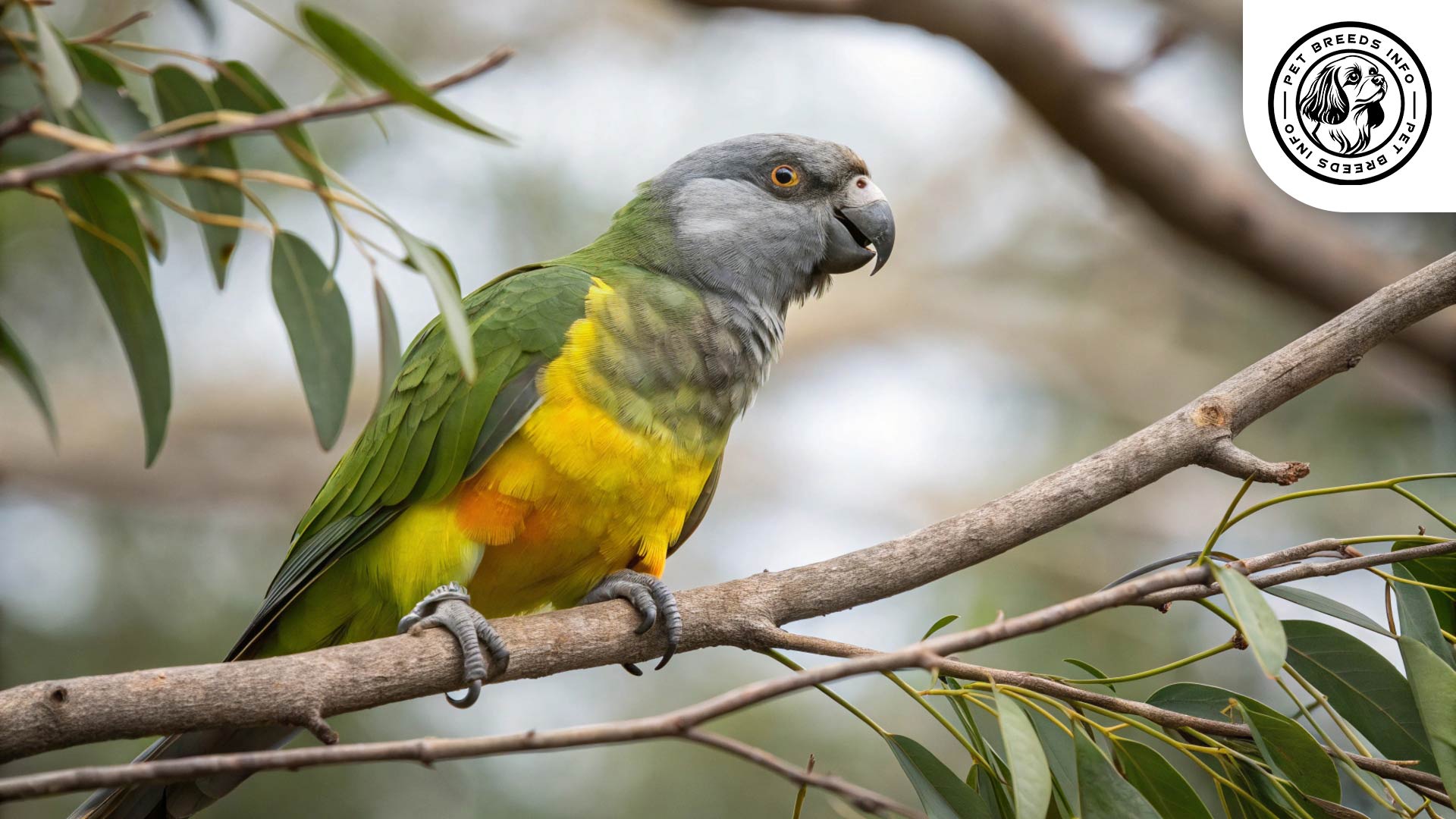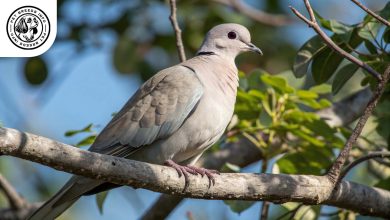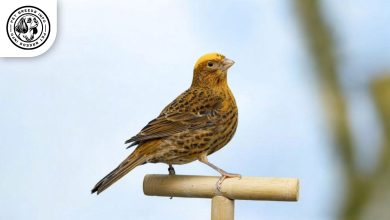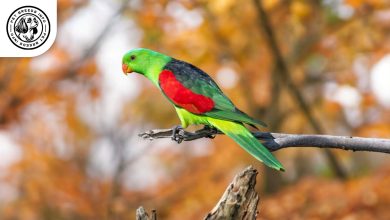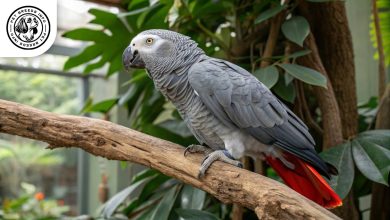Senegal Parrot Bird: Personality, Lifespan, Food & Care
General Introduction of the Breed
The Senegal Parrot (Poicephalus senegalus) is a popular and intelligent parrot species known for its calm nature and ability to mimic sounds. It is also referred to simply as “Senegal” or “Sennie” by bird enthusiasts.
This parrot originates from West Africa, particularly from Senegal, Guinea, and surrounding regions. Senegal Parrots have been kept as pets for centuries due to their manageable size, affectionate personality, and relatively quiet nature compared to other parrots.
Table of Contents
| Common Name | Senegal Parrot, Senegal, Sennie |
| Scientific Name | Poicephalus senegalus |
| Origin | West Africa (Senegal, Guinea, and surrounding regions) |
| Size | Approximately 9 inches (23 cm) |
| Lifespan | 20 to 30 years |
| Talking Ability | Capable of learning tricks, mimicking sounds, and speaking short phrases. Not as vocal as some larger parrots. |
| Colors | Predominantly green, with a yellow-orange chest and a gray head. Belly shade varies by subspecies. Dark eyes with a light-colored ring. |
| Noise Level | Relatively quiet compared to other parrot species. |
| Social Behavior | Playful, curious, enjoys interacting with humans, forms strong bonds (often with one person), can be shy with strangers, needs regular interaction. |
Physical Characteristics
Senegal Parrots are medium-sized birds with an average length of about 9 inches (23 cm) and a weight of approximately 4 to 6 ounces (125 to 170 grams). They have a compact build with strong beaks.
Their plumage is predominantly green, with a yellow-orange chest and a gray head. The specific shade of their belly can vary depending on their subspecies. Their eyes are round and dark with a light-colored ring surrounding them.
They have short, rounded tails, and their beaks are dark gray and strong, built for cracking nuts and seeds. Their zygodactyl feet (two toes facing forward and two facing backward) enable them to grip branches and objects efficiently.
Read More: Red Canary Bird
Personality and Temperament
Senegal Parrots are highly intelligent and capable of learning tricks, mimicking sounds, and even speaking short phrases. While they are not as vocal as some larger parrot species, they can still communicate effectively with their owners.
They are known for their playful and curious nature. They enjoy interacting with humans and often form strong bonds with a particular person in the household. While affectionate, they can sometimes be shy or wary of strangers.
Senegal Parrots adapt well to home environments and are known for their generally calm disposition. However, they require regular social interaction to prevent boredom and behavioral issues.
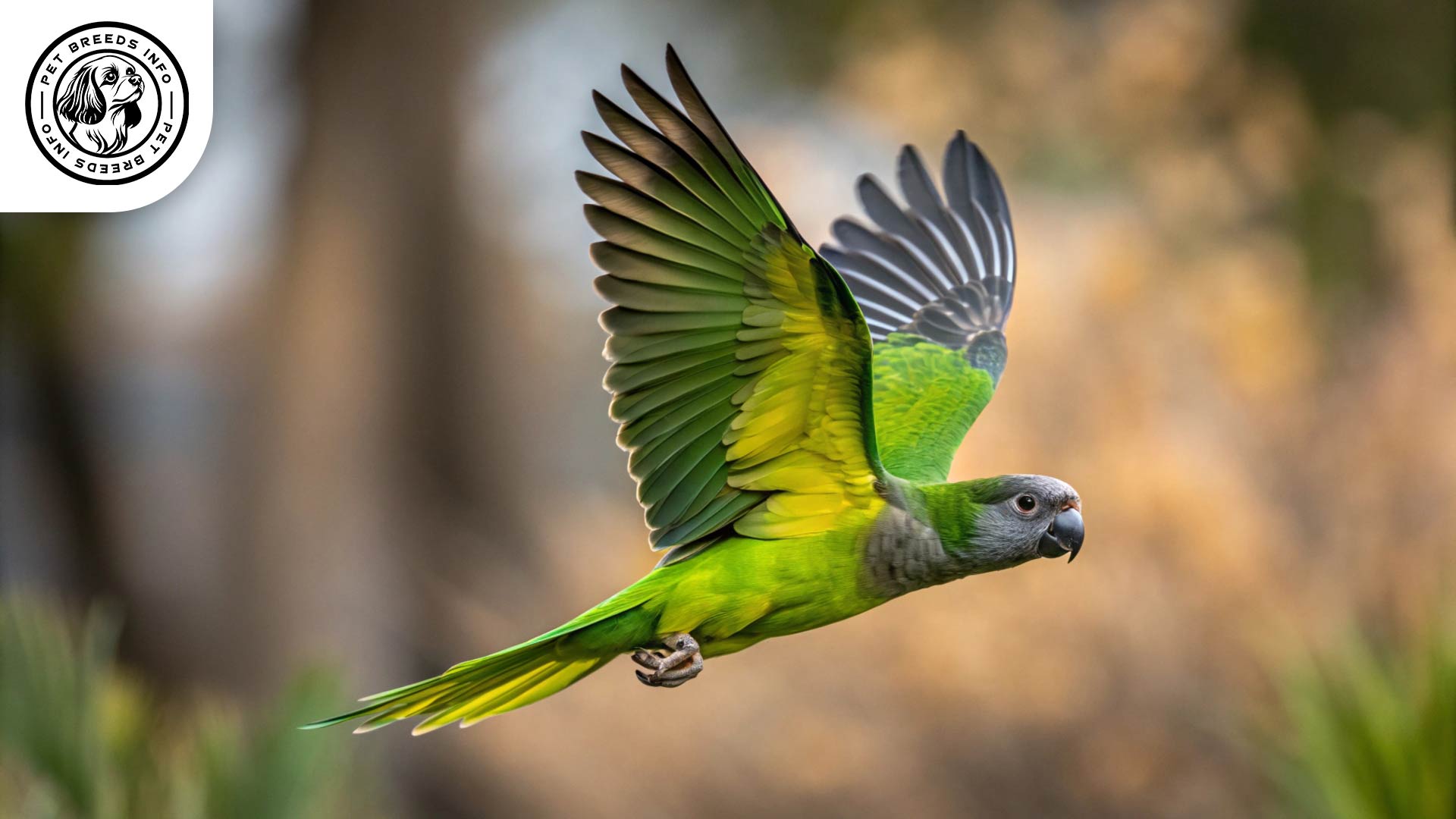
Care and Maintenance Requirements
These parrots require regular mental and physical stimulation. Providing them with toys, games, and activities such as foraging challenges will help keep them engaged.
They are well-suited for apartment living due to their relatively quiet nature. A spacious cage with perches, climbing areas, and toys is recommended. Daily out-of-cage time for exercise is essential.
Senegal Parrots do not require extensive grooming, but regular nail trimming and beak inspections are necessary. They also enjoy occasional baths or misting to keep their feathers clean and healthy.
They are sensitive to temperature extremes, so maintaining a comfortable indoor environment is crucial. Exposure to smoke and toxic fumes (such as from Teflon cookware) should be strictly avoided.
Diet and Nutrition
A balanced diet for a Senegal Parrot should consist of high-quality pellets, fresh fruits, and vegetables. Seeds and nuts can be given in moderation as treats to prevent obesity.
Foods to avoid include chocolate, avocado, caffeine, alcohol, onions, and excessively salty or sugary foods. A clean and fresh water supply should be available at all times.
Portion sizes should be managed to ensure the parrot does not overeat. Two planned meals per day, along with small healthy snacks, are ideal.
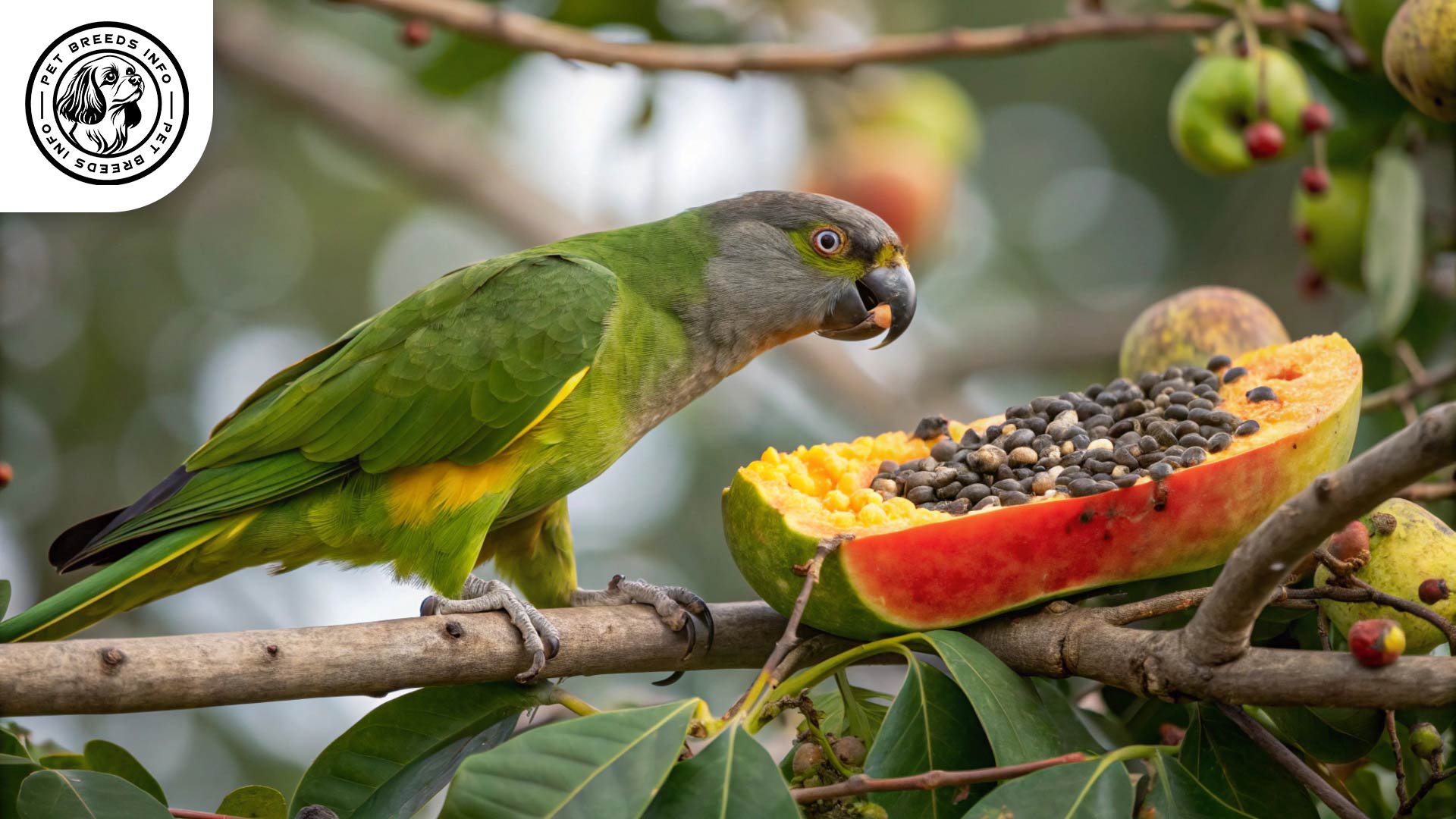
Health and Common Medical Issues
Senegal Parrots are generally hardy birds, but they are prone to certain health conditions such as vitamin A deficiency, respiratory infections, feather plucking, and psittacosis (parrot fever).
They require regular veterinary checkups to ensure they remain healthy. Their lifespan can range from 20 to 30 years with proper care.
Vaccinations are not commonly required for pet parrots, but routine veterinary examinations and a preventative diet can help avoid common illnesses.
Read More: Steinbacher Goose
Training and Behavior Management
Senegal Parrots are relatively easy to train due to their intelligence. Positive reinforcement techniques, such as offering treats and praise, work best for training this species.
Early socialization and exposure to different people and environments help ensure well-rounded behavior. Teaching simple commands and tricks helps to keep them mentally stimulated.
Consistency in training and establishing clear boundaries will help prevent any behavioral issues, such as biting or excessive territorial tendencies.
Interaction with Other Animals and Humans
Senegal Parrots can form deep bonds with their human caregivers, often preferring one person over others. They enjoy interactive play and social time but can be independent when necessary.
They generally get along well with gentle children, but younger kids should be supervised to ensure respectful handling.
While it is possible to keep multiple parrots together, Senegal Parrots can sometimes be territorial. Proper introductions and monitoring are required if they are housed with other birds or pets.
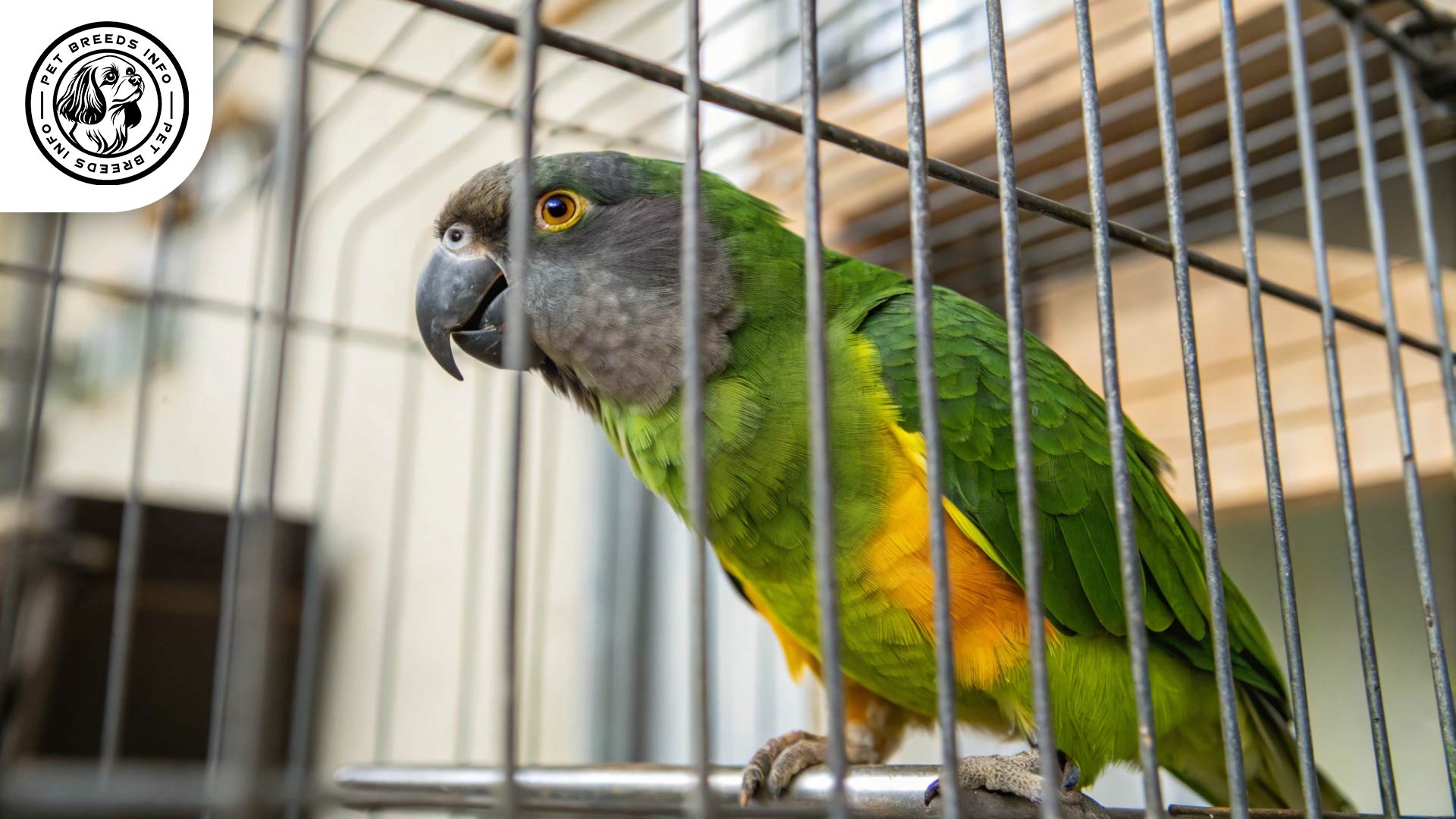
Price and Availability
The cost of a Senegal Parrot can range from $500 to $1,500, depending on factors such as age, breeder reputation, and bird health.
Prospective owners should only purchase from reputable breeders or consider adopting from bird rescue centers. Ethical breeding practices and the health of the bird should be top priorities when selecting a Senegal Parrot.
Conclusion and Final Thoughts
Senegal Parrots make wonderful pets for individuals or families who are willing to invest time and attention in their care. They are intelligent, affectionate, and relatively quiet compared to other parrots.
They thrive in environments where they receive mental stimulation and consistent social interaction. With proper care, they can be delightful companions for decades.
Potential owners should be prepared for the long-term commitment required to keep a Senegal Parrot happy and healthy. Understanding their dietary, social, and environmental needs is essential before bringing one home.
Read More: Lilian’s Lovebird
FAQ
Are Senegal Parrots good talkers?
Yes, they can learn to mimic sounds and speak short phrases, though they are not as vocal as some larger parrot species.
What is the typical size and weight of a Senegal Parrot?
They are medium-sized, about 9 inches (23 cm) long and weigh approximately 4 to 6 ounces (125 to 170 grams).
How long do Senegal Parrots typically live?
With proper care, their lifespan can range from 20 to 30 years.
Are Senegal Parrots noisy pets?
No, they are known for being relatively quiet compared to many other types of parrots, making them suitable for apartment living.
Do Senegal Parrots need a lot of social interaction?
Yes, they are social birds that need regular interaction with their owners to prevent boredom and behavioral issues.
